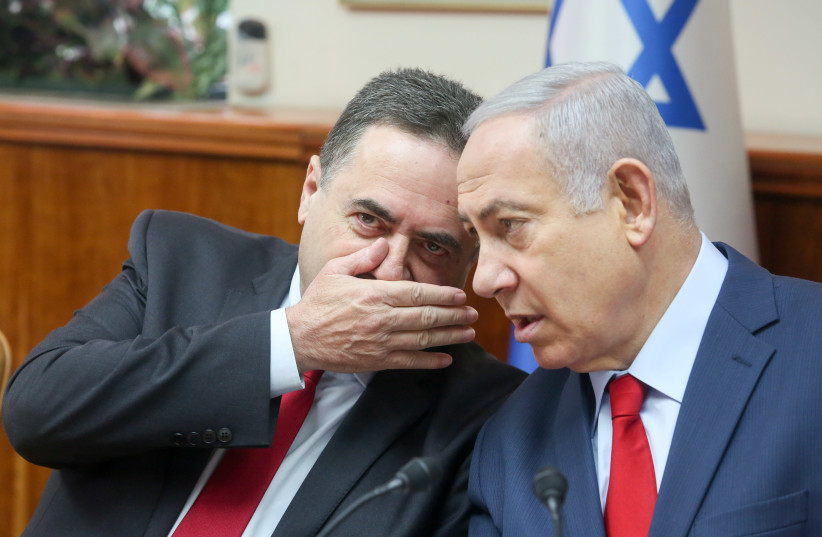The plan’s approval by the government means it will move to the Knesset plenum, where it must pass in 3 readings before December 23, 2020.

Prime Minister Benjamin Netanyahu and Finance Minister Israel Katz approved a NIS 11 billion budget increase late on Wednesday night, the largest portion (NIS 3 billion) of which will go toward Israel’s defense budget.
The budget increase includes special grants for the disabled population, a plan to help about 2,000 Ethiopian Falash Mura members immigrate to Israel, an aid program to integrate members of the Ethiopian community in Israel, dozens of educational programs in state and religious education, a defense budget increase of NIS 3 billion, a program for the empowerment and development of the Druze and Circassian populations, development and strengthening of settlement building operations in Judea and Samaria, aid budgets for student villages throughout the country, animal rights programs and more.
Prime Minister Benjamin Netanyahu said in a statement following the announced budget increase that “this is important news for all Israeli citizens and populations in-need in Israeli society during the coronavirus era. I welcome the fact that we have reached agreements with the Minister of Defense. As I pledged, we also made sure to continue the immigration of Falash Mura members and increase the defense budget, as we face made different challenges these days.”
Minister of Finance Israel Katz added that “I have brought great news for the disabled public as per our promise. It is the time to work in full cooperation to demonstrate solidarity and social sensitivity to help the self-employed, employees and business owners, overcome the coronavirus crisis and move the economy and the economy as a whole, to a place of growth.”
The NIS 11 billion increase puts the total government budget for 2020 at NIS 411 billion. In addition, the update of the three-year budget plan (numerator) for the years 2021 to 2023 was also approved during the meeting.
The plan’s approval by the government means it will move to the Knesset plenum, where it must pass in 3 readings before December 23, 2020.
According to the government’s statement, the new plans include:
• Increasing the defense budget by more than NIS 3 billion.
• Increasing disability benefits for 2020, with a new budget of approximately NIS 900 million.
• A plan to raise an additional 2,000 Falash Mura members, with a budget of NIS 180 million.
• Strengthening and increasing the budgets for state religious education, yeshivas, midrashas, settlements, Torah nuclei and Jewish identity systems.
• Programs for the empowerment and development of the Druze and Circassian populations.
• A plan to map illegal Palestinian construction in Area C
• Further development and strengthening of settlements in Judea and Samaria.
• Further development of the excavations in the City of David.
• Programs to empower and strengthen the Ethiopian-Israeli community.
• Programs in the education system
A continuation of educational programs such as programs for training teaching and academic staff, the “Chotem” program, specialization of academics, conditional loans for students in-need, programs for at-risk youths and dropout-prevention, programs for the inclusion and integration of special education students, programs in non-formal education, strengthening education in the socio-geographic periphery, special-education reform, continued budgeting for the construction of the National Library, a reinforcement of support budgets for youth movements, National Service volunteers, aid budgets for student villages, Torah nuclei and educator groups, an addition to the yeshiva budget and a reinforcement of informal education budgets.
• Acceleration programs for the energy market, energy efficiency programs, investments in natural gas, promotion of ‘clean’ transportation and special budgets for research and development.
• Support for non-profit organizations that distribute food throughout
the year, especially in the run-up to Rosh Hashanah.
• Scholarships for thousands of immigrant students in the coming academic year, budgeting of the envelope activity of the Immigrant Student Administration, educational activities for immigrant children of elementary and elementary age, nucleus activity of individual immigrant soldiers and projectors accompanying immigrants in local authorities.
• Grants to encourage investment in industry and small and medium-sized businesses, promote exports and develop industrial areas.
• Grants to local authorities, which include, among other things, a stimulus for the issuance of housing permits, recovery plans for local authorities, development projects in local authorities and other ongoing grants.
• A budget for local authorities to promote bicycle paths, public transport infrastructure and urban projects to increase road safety.
• A doubling of the budget for spaying stray cats due to a recent rise in the feline population.
• Promoting a national plan for public transportation terminals, in order to reduce barriers for the expansion of public transportation services in Israel.
• A plan for the development of road lighting in Judea and Samaria.
As reported by The Jerusalem Post
